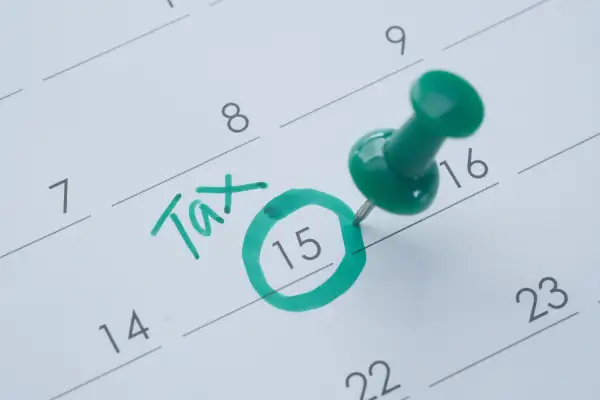If You Filed for an Extension, Your Taxes Are Now Due

Hey all you tax slackers — if you filed for an extension this year, the deadline to file your 2018 tax return is Tuesday, Oct. 15.
That’s, ahem, today.
Every year, taxpayers are allowed to request an extension from Uncle Sam to file their taxes as long as they make the request by April 15 (or whichever day tax day falls on that particular year). The extension is only for filing your taxes, however. If you owed taxes this year, you still had to pay them by April 15 or incur a penalty from the IRS.
Don’t feel bad if you haven’t done your taxes yet. I haven’t either (cringe face emoji). The IRS reported that a record 15 million people, or roughly one in 10 filers, received automatic, six-month filing extensions for their 2018 returns, according to The New York Times. Popular reasons that people file for extensions include incomplete paperwork or scheduling conflicts, such as being out of town during the deadline. Big changes made to the tax code in late 2017 -- which first took effect for 2018 returns -- contributed to the record number of those filing for an extension this year, The New York Times reported.
But all procrastinators have to face reality at some point, and for us tax-extension-filers, that day is today.
If you filed for an extension and you miss the Oct. 15 deadline, you are responsible for the same late-filing penalty as if you had failed to the file by April 15 and not requested an extension: you will have to pay the IRS 5% per month of any unpaid taxes, up to a maximum of 25% of unpaid taxes. If you remember to file, but don’t pay what you owe on time, you'll be hit with a failure-to-pay penalty of 0.5% of unpaid taxes per month until you are up to date.
But if you're expecting a refund -- that is, the IRS owes you money instead of the other way around -- then you're in luck. The IRS penalty for late returns is based on unpaid taxes, so if you don’t have unpaid taxes, you won't be assessed a penalty for blowing the Oct. 15 deadline, according to Alison Flores, principal tax research analyst at The Tax Institute at H&R Block.
"Generally, you have up to three years from the due date of the return to claim a refund," Flores says. "However, you should still file as soon as possible in order to claim your refund and let the IRS know your tax liability was already paid through withholding, estimated tax payments, or credits."